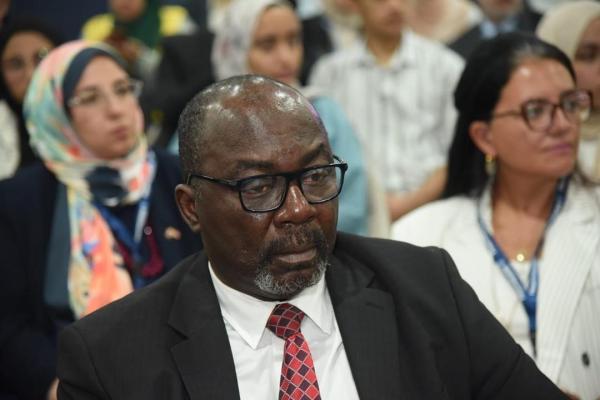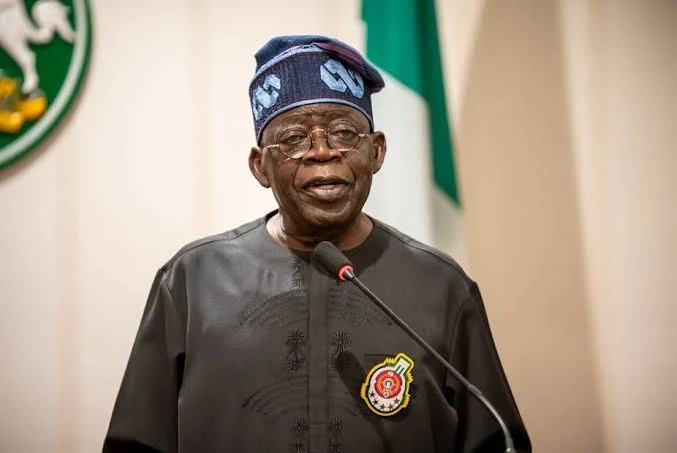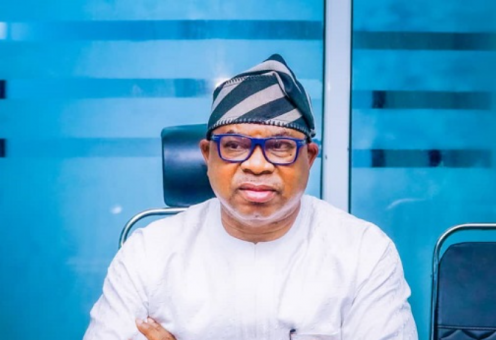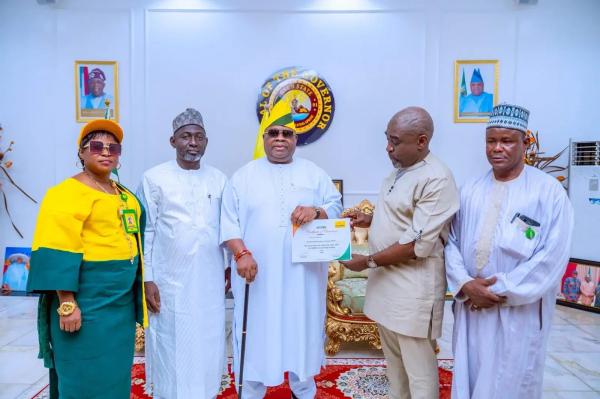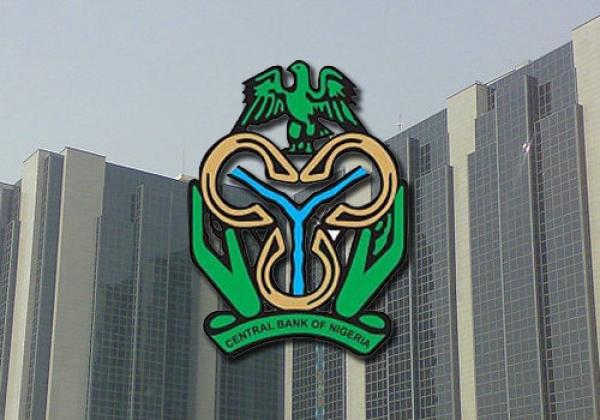
THE politics playing out in the north-eastern state of Taraba, especially with regard to the governorship election, is intriguing owing to the players involved, the stakes, sentiments, credibility of the electoral umpire and timing.
The governorship election held in the state, like many others, on April 11 was declared inconclusive by the Independent National Electoral Commission (INEC). The Returning Officer, Professor Kyari Mohammed, had claimed that the cancelled votes outnumbered the margin of victory of the candidate of the Peoples Democratic Party (PDP), Darius Dickson Ishaku, over the All Progressives Congress’s (APC’s) Senator Aisha Alhassan.
The contest was basically among the APC, the PDP and 15 other political parties. The candidate of the Social Democratic Party (SDP), David Sabo Kente, was another interesting element in the equation. He was the second runner-up.
A little background on the state will be invaluable here.
The state comprises 16 local government areas and three senatorial districts with the North having six local governments and the South and Central zones having five each. The religious polarity of the state is between predominant Christians and the Muslims. The religious divide is hardly distinct because each of the zones has a mixture of the two dominant religions. The state boasts over 25 tribes. All this is expected to influence the voting pattern in the state today.
Since the return to democracy in 1999, the state has been ruled exclusively by the PDP and also almost exclusively by the predominant Christians. Jolly Nyame, a Christian from the northern zone ruled the state for eight years, from 1999. He was succeeded by Danbaba Suntai in 2007. With the air accident that has left Suntai incapacitated since 2011, the Muslims had their first shot at governorship with Suntai’s deputy, Alhaji Garba Umar, assuming office in acting capacity until the Supreme Court reinstated the impeached then deputy governor, Sani Danladi, in November 2014.
Meanwhile, in the last 16 years, the Northern and Central zones of the state have ruled, and given an unwritten sharing formula, 2015 is the turn of the Southern zone to produce the next governor.
After the air accident of Governor Suntai in 2011, the then newly appointed deputy governor, Umar, took over from his ailing boss, albeit in acting capacity. He had indicated his interest to run for governorship in 2014 before the Supreme Court removed him and reinstated Danladi, a time it was obviously too late for him (Danladi) to join the contest.
Ishaku, a lecturer and former minister, had slugged it out with Chief David Sabo Kente, an accountant at the National Assembly, for the PDP ticket. Kente’s loss in the primary led to his defection to the SDP, of which he eventually became the governorship candidate.
The APC had a primary that saw three out of the four aspirants withdrawing from the race just hours before it began in protest against the alleged monopoly of the party’s machinery in the state by Senator Alhassan. She got the ticket virtually unopposed.
Kente is from the same zone as the PDP candidate, Ishaku and they are both Christians. Since Ishaku is the godson of the most influential person in the state’s politics, General T. Y. Danjuma, elders who had earlier endorsed Kenta chose to follow Danjuma. And despite the general expectation, especially by those from the Southern Zone, that he would withdraw, Kente remained in the race. The people from the Southern saw his presence in the race as a threat to the actualisation of the goal of producing the next governor. This and his alleged romance with the APC as well as the people’s reluctance to vote a party other than the ‘conventional’ PDP cost him the support of the people.
Alhassan
Senator Alhassan is the first woman to contest for the office of the governor in the state since its creation. She clinched the APC ticket in a controversial primary and has since proven that she meant business.
She is believed to have to her advantage, the wind of change blowing in the country and the general tendency to sympathise with a woman in a men’s turf. However, she is a Muslim from the Northern zone which had produced Jolly Nyame, who first governed the state from January 1992 to November 1993 and returned in 1999 and ruled for eight years.
As a Muslim, she enjoys the support of a sizable number of Islamic adherents, who feel it is time one of them became the governor. But the Muslim community in the state is divided. Many stakeholders feel it is inappropriate for a woman to rule over men. She had enjoyed an early lead in the April 11 poll but in the end, she fell short by about 54, 000 votes.
Ishaku
When Ishaku joined the race, he seemed to have the least chance of making much headway. He was virtually unknown to the people. It was even believed that the other contestants enjoyed more popularity than him. Whatever garb of popularity he might have had was even dealt a blow by a notion that he held a ticket that belonged to Kente. The major task before Ishaku was to worm his way into the hearts of the people, but his efforts in this direction during his campaign did not come without a price. His campaign vehicles were attacked several times, some of them destroyed in the process. He is thought to have gone the extra mile to sell himself to the people by visiting all nooks and crannies of the state, meeting with the ordinary people in the village where the other candidates simply had no reason to go. And after a few months, he became a household name of sort in Taraba politics. He has also downplayed the role of Danjuma in his quest to become the governor of the state.
The refusal of Kente to withdraw from the race so that Christians would have a bloc vote also worked for him as most of people who were irked by Kente’s decision threw their weights behind him. Also, as a Christian from the Southern zone, he was believed to have been favoured on April 11 by Muslims who were convinced that it was not proper to put a woman in such a high office as the governor’s. The result was a 54, 000 votes lead he enjoyed in the election.
The runoff
The announcement of a runoff came as a shocker to the people of the state. When the Returning Officer, Professor Mohammed, declared that the governorship election was inconclusive, the collation centre at the INEC’s head office in Jalingo was thrown into chaos. This was unprecedented.
The election was clearly won with over 54, 000 votes and in 11 out of the 16 local government areas in the state. The situation was only calmed when Mohammed explained the reason behind the cancellation - that the number of cancelled votes was more than the margin of victory.
The deluge of cancelled votes
The role played by the electoral body and the returning officer and the state Resident Electoral Commissioner, Mr Ahmed Makamma in the collation of the election results was seen as a “deliberate effort to scuttle a victory that was so glaring even to the blind,” as a House of Representatives member-elect in the state, Rimande Shawulu, put it.
The entire results of the election in Donga Local Government Area with 165 polling units were cancelled because there were alleged irregularities in five polling units. Donga had a total of 85,557 registered voters and the PDP won the local government with over 37,000 votes as against the about 10,000 votes scored by APC.
When the issue of Donga was raised, party agents felt the results for the five polling units where there were irregularities should have been cancelled and the rest of the results announced but the returning officer insisted on cancelling the entire results in the local government.
This was further made fishy when the results of Bali Local Government Area, suspected to be a stronghold of the APC, was allowed to fly even when there were reported irregularities in 20 polling units. The votes in the affected polling units, said to be 14,587, were cancelled but the rest of the results were announced.
The entire election in Donga Local Government Area, seen as a PDP stronghold, was cancelled because there were irregularities in five out of 165 polling units, thereby increasing the number of cancelled votes by over 85,000, while that of Bali Local Government Area, an acclaimed APC stronghold, was allowed to fly even in the face of alleged irregularities in 20 polling units. The rationale behind the decision has unclear to most people.
In all, there were cancellations in 118 polling units across 10 local government areas, amounting to 127,125 votes. This is the figure that the PDP and APC candidates are to battle for today.
With the current margin of victory, the APC candidate will require about 95, 000 votes out of the lot to edge her way to victory while the candidate of the PDP will only need about 38, 000 to retain victory. But the requirements of both candidates in today’s exercise are subject to the electorate who can be unpredictable.
Senator Alhassan of the APC is enjoying a worldwide sympathy based on the belief that a woman should be given the chance to rule. With the wind of change blowing across the country courtesy of the victory of General Muhammadu Buhari, it is hoped that she will triumph in spite of all odds.
In an interview with Saturday Tribune, a chieftain of the APC who was very close to the campaign, Alhaji Gambo Umar, said the party was carrying out house-to-house campaigns in the areas affected by the cancellation. According to him, the party would accept defeat if the election was clearly won but anything short of a free, fair and credible election would be contested by the party to a logical conclusion.
“We are not unaware of the irregularities in some places that the INEC allowed to pass in favour of the PDP and whether my party wins or not, the party will contest all this. For now, we have intensified campaign in all the affected areas and I’m sure the party will win,” he said.
It was also alleged that the candidate of the SDP who came third in the April 11 election had thrown his weight behind the APC candidate and the development is expected to boost her chances to some extent. Alhassan, however, may need much more luckl, considering the fact that the votes are concentrated in places believed to be PDP strongholds. The three senatorial seats were won by the PDP, while three out of the six House of representatives seats were also won by the PDP with the APC having two and the All Progressives Grand Alliance (APGA), one. The state House of Assembly is also dominated by the PDP, which occupies 15 of the 24 seats, whereas the APC has seven.
Ishaku carried out intensive campaign in the areas where the runoff is to take place. The ‘victory’ of the party two weeks ago seems to be etched in the minds of the people who believe that PDP is the ruling party, irrespective of the loss the party suffered at the national level and, indeed, across the country.
A factor that may work in the PDP candidate’s favour is the calm and confidence he exuded as the political events unfold. While most of the party stalwarts were clamouring for the reversal of the “mischievous cancellations” in Donga and for him to be announced winner of the election, Ishaku remained calm and continuously expressed confidence in INEC to conduct free and credible runoff.
In an interview with Saturday Tribune, Ishaku stated that, “It is unfortunate that we have to go through this all over again after the people had spoken so loudly and handed out their mandate to me. However, constituted authority must be respected and so if the INEC decides that a runoff is the only solution, then I’m in for it. It is the same people who voted for me that are still going to vote and I will simply emerge even more victorious.”
Aside from this, the elected officers from these respective areas seem to have moved in to ensure that they deliver their constituencies to the party.
Meanwhile, the PDP spokesman, Napoleon Adamu, while speaking on the level of preparedness of the party, expressed optimism as the party was leaving no stone unturned. “We are seriously preparing for the runoff and we are confident of winning. We will not make any mistakes in this last lapse of the race and that is why the party is deploying everything at its disposal to ensure that no more surprises are spurn on us,” he said.
While it is obvious that the PDP may have had the victory within its grasp, the impression, especially among the fast-growing APC family, is that the APC candidate had actually won the election and is only being intimidated because of her gender. This is already generating tension across the state and raising security concerns. The security establishments have assured of adequate security measures to forestall breach of law and order in the state.
It is, indeed, a most interesting game that is going on in the state between the two parties. According to political watchers, the electorate had already taken a position through the first two elections and as such, the voting pattern may not change as much. The contest may have a definite direction already and yet, the possibility of surprises springing at the last-minute cannot be ruled out.
All one has to do now is to sit back and watch as history is being made in the state today. It is either the state produces the first female governor in the country or the first governor of the state from the Southern zone is declared. Whichever way, it must be said that Senator Alhassan is a living proof that women are not inferior to men in politics.












